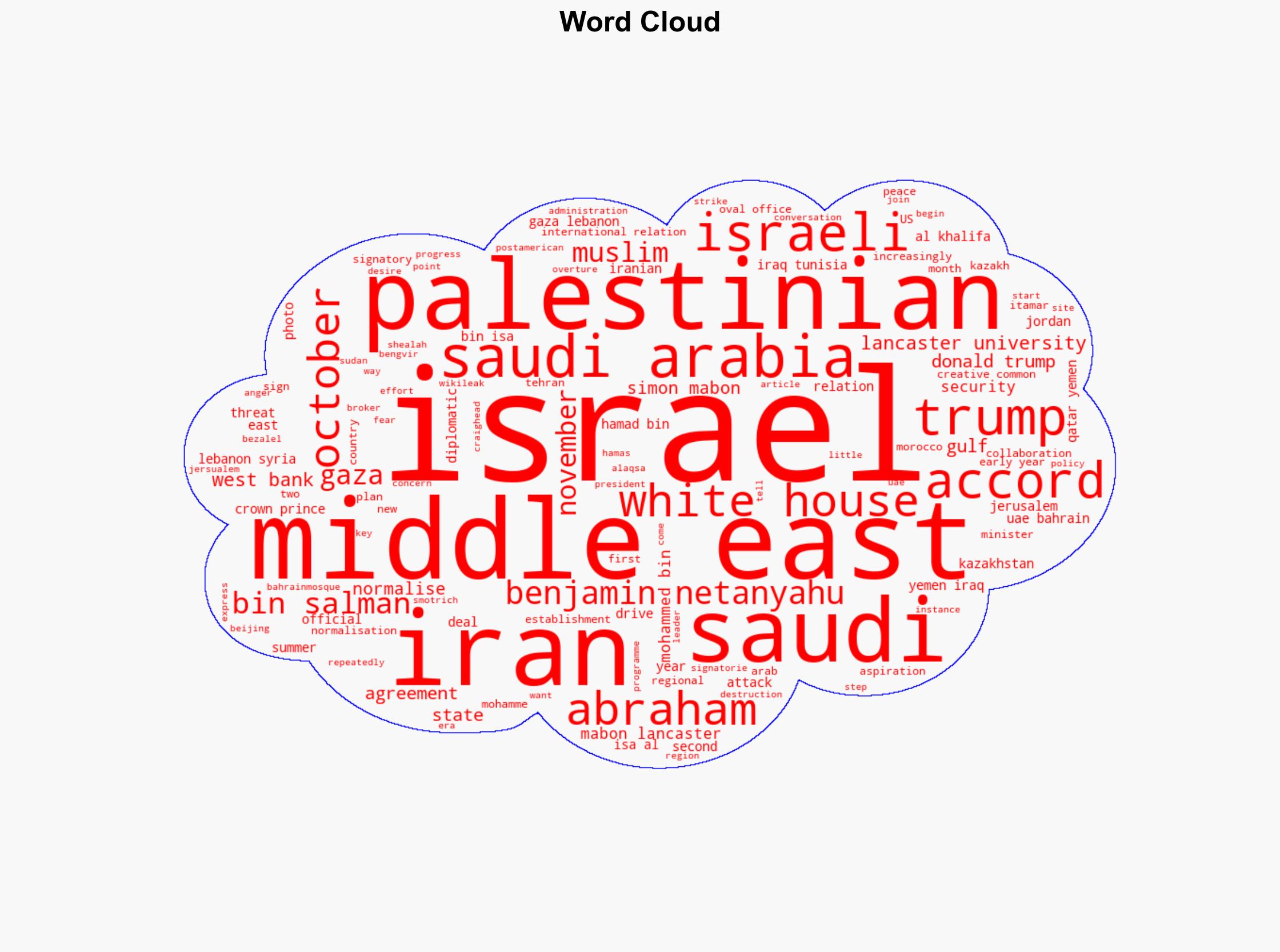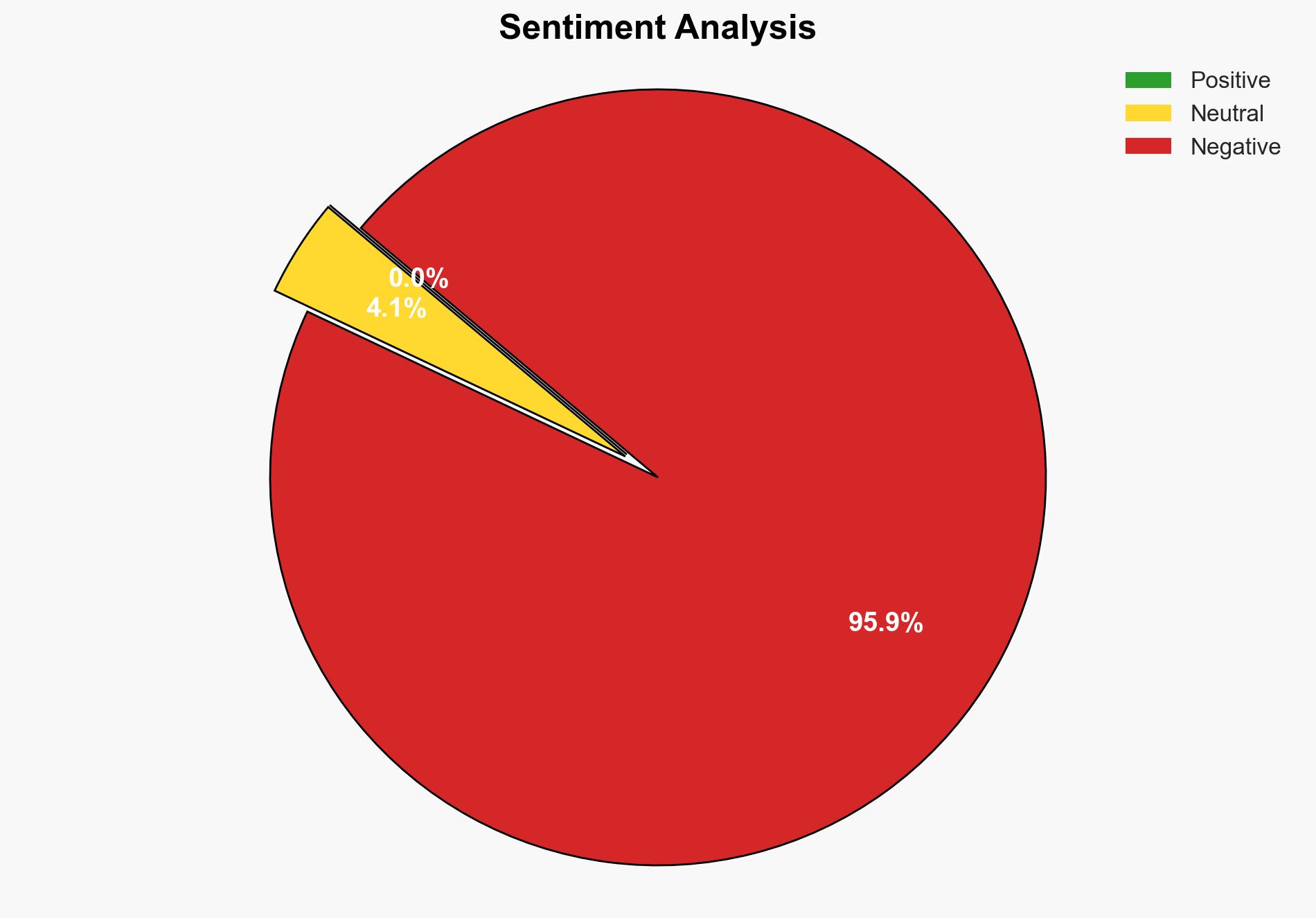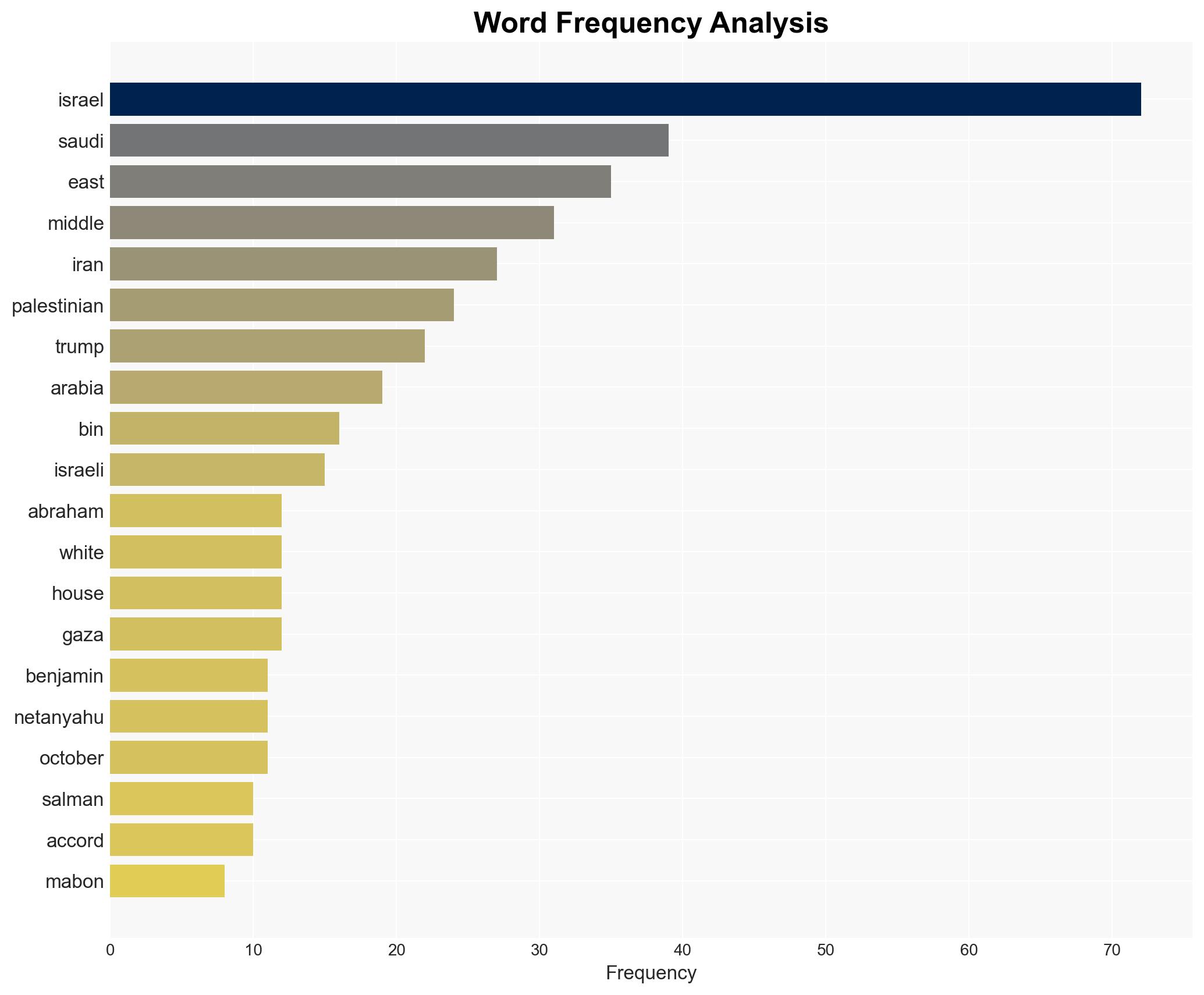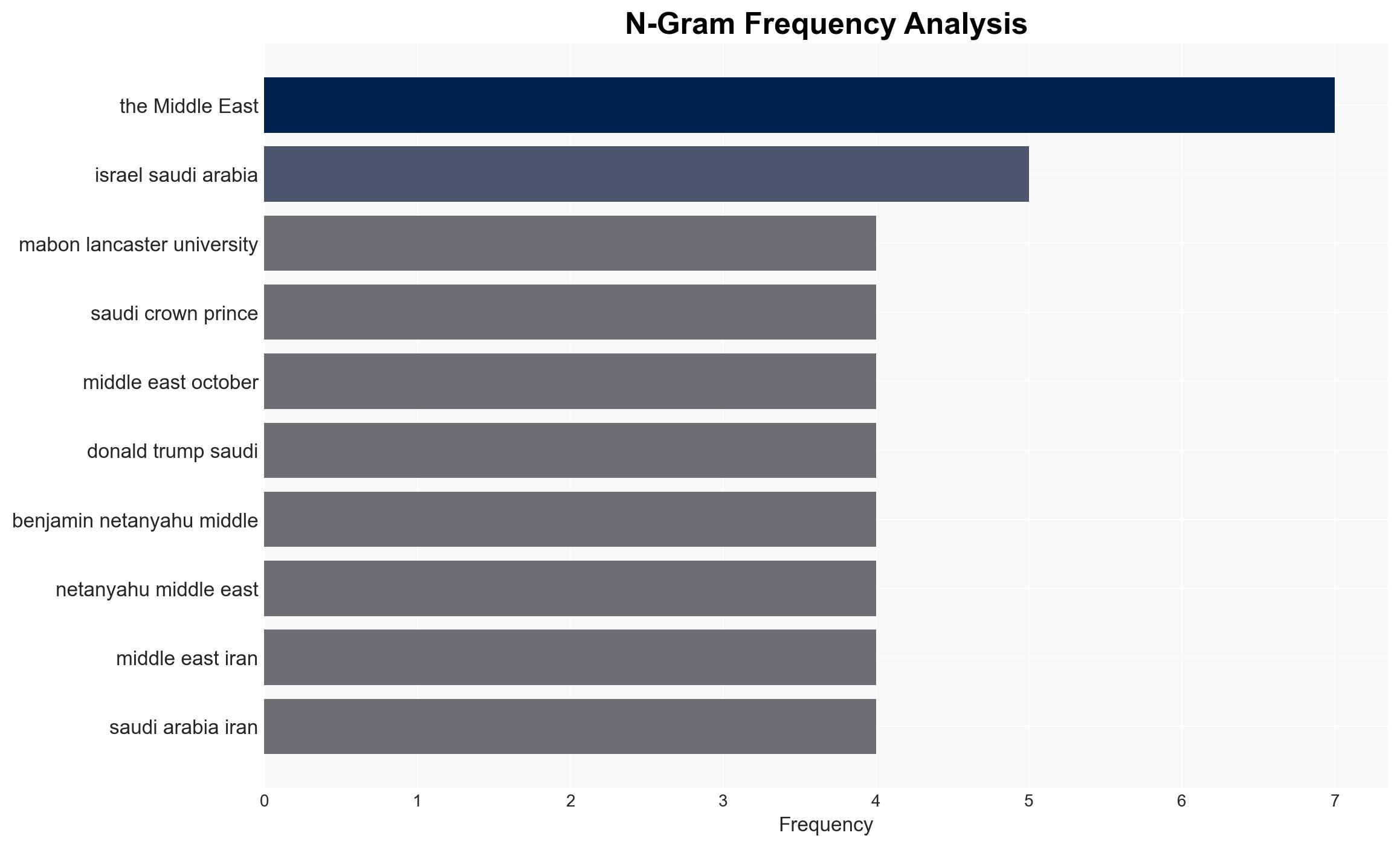Why Palestinian Statehood is a Prerequisite for Arab-Israeli Peace and Expansion of Abraham Accords
Published on: 2025-11-25
AI-powered OSINT brief from verified open sources. Automated NLP signal extraction with human verification. See our Methodology and Why WorldWideWatchers.
Intelligence Report:
1. BLUF (Bottom Line Up Front)
The strategic judgment is that Palestinian statehood is a critical prerequisite for further Arab-Israeli normalization, including Saudi Arabia’s potential accession to the Abraham Accords. The most supported hypothesis is that without a clear path to a two-state solution, significant Arab states will remain hesitant to formalize relations with Israel. Confidence Level: Moderate. Recommended action: Encourage diplomatic efforts towards a two-state solution while leveraging existing security and economic collaborations to maintain regional stability.
2. Competing Hypotheses
Hypothesis 1: Palestinian statehood is essential for further expansion of the Abraham Accords. This hypothesis is supported by Saudi Arabia’s explicit linkage of normalization with Israel to the establishment of a Palestinian state, as well as the broader Arab world’s historical stance on the issue.
Hypothesis 2: The Abraham Accords can expand without Palestinian statehood due to shared regional security concerns, particularly regarding Iran. This hypothesis is supported by the existing normalization agreements with UAE, Bahrain, and others, which were driven by mutual security interests rather than Palestinian statehood.
The first hypothesis is more likely given the recent statements by Saudi officials and the historical precedence of Arab states conditioning normalization on progress towards a Palestinian state.
3. Key Assumptions and Red Flags
Assumptions include the belief that Saudi Arabia’s public statements reflect genuine policy positions and that regional security dynamics will not drastically shift in the short term. Red flags include potential deception by regional actors who may publicly support Palestinian statehood while privately prioritizing other interests. The risk of bias exists in overestimating the influence of Palestinian statehood on regional diplomacy.
4. Implications and Strategic Risks
The primary implication is that failure to address Palestinian statehood could stall or reverse the momentum of the Abraham Accords, potentially leading to increased regional instability. Strategic risks include political backlash within Arab states, cyber threats from disenfranchised groups, economic disruptions due to heightened tensions, and informational warfare aimed at undermining normalization efforts.
5. Recommendations and Outlook
- Encourage multilateral talks involving key stakeholders to address Palestinian statehood and regional security concerns simultaneously.
- Strengthen existing security collaborations to mitigate the Iranian threat and maintain stability.
- Best-case scenario: A diplomatic breakthrough leads to a two-state solution, facilitating broader normalization.
- Worst-case scenario: Escalating violence and diplomatic stalemate hinder further normalization efforts.
- Most-likely scenario: Incremental progress towards normalization with continued emphasis on security cooperation.
6. Key Individuals and Entities
Mohammed bin Salman, Donald Trump, Benjamin Netanyahu, Hamad bin Isa Al Khalifa.
7. Thematic Tags
Regional Focus, Middle East, Arab-Israeli Relations, Abraham Accords, Palestinian Statehood, Regional Security
Structured Analytic Techniques Applied
- Causal Layered Analysis (CLA): Analyze events across surface happenings, systems, worldviews, and myths.
- Cross-Impact Simulation: Model ripple effects across neighboring states, conflicts, or economic dependencies.
- Scenario Generation: Explore divergent futures under varying assumptions to identify plausible paths.
- Network Influence Mapping: Map influence relationships to assess actor impact.
Explore more:
Regional Focus Briefs ·
Daily Summary ·
Support us





